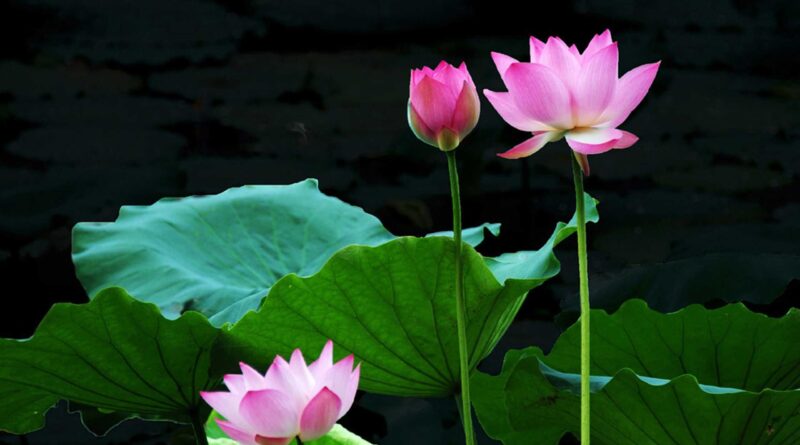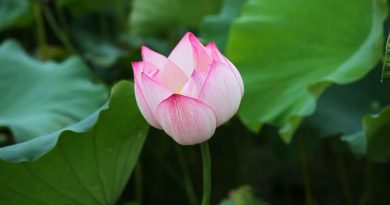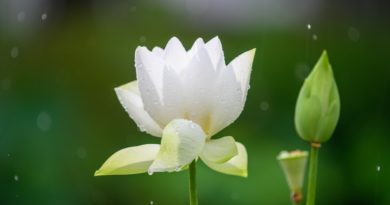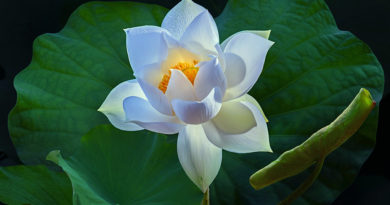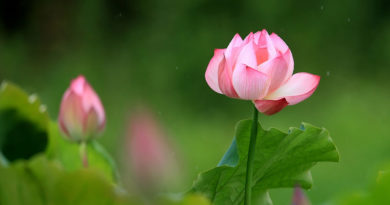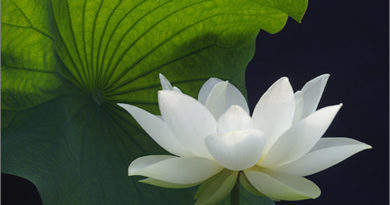Division Iii –– Khandhaka Book 30 –– Gandhabbakāya Saṃyutta Chapter 1 –– Gandhabbakāya Vagga
Sutta Pitaka
Saṃyutta Nikāya
Division III –– Khandhaka
Book 30 –– Gandhabbakāya Saṃyutta
Chapter 1 –– Gandhabbakāya Vagga
Namo tassa bhagavato arahato sammā sambudhassa
30. 1. 1. Suddhikaṃ –– Purity
1. I heard thus. At one time the Blessed One was living in the monastery offered by Anāthapiṇḍika in Jeta’s grove in Sāvatthi.
2. The Blessed One addressed the monks from there:
3. “Monks, I will tell you about the gods of the company of musicians, listen carefully to it.
4. “Monks, who are the gods of the company of musicians?
There are gods living in the scent of roots, in the scent of essences, in the scent of surrounding odors, in the scent of the bark, in the scent of shoots, in the scent of leaves, in the scent of flowers, in the scent of fruits, in the scent of tastes and in the scent of incenses.
5. “Monks, these are the gods of the company of mucisians.”
30. 1. 2. Sucaritaṃ –– Good Conduct
1. I heard thus. At one time the Blessed One was living in the monastery offered by Anāthapiṇḍika in Jeta’s grove in Sāvatthi.
2. Then a certain monk approached the Blessed One, worshipped, and sat on a side.
3. Sitting, that monk said to the Blessed One: “Venerable sir, how is it that a certain one, after death, is born with the gods of the company of musicians?”
4. “Here, monk, a certain one develops good conduct by body, speech, and mind. He learns that the gods of the company of musicians enjoy long life, beauty, and much pleasantness.
5. “Then it occurs to him, ‘May I be born with the gods of the company of musicians after death.’
6. “After the breakup of the body, after death, he is born with the gods of the company of musicians.
7. “Monk, this is the reason for a certain one to be born with the gods of the company of musicians.”
(Here follows ten suttas describing rebirth among the gods of the compay of musicians living among various pleasant fragrences.)
30. 1. 3. Mūlagandha – Smell of Roots
1. I heard thus. At one time the Blessed One was living in the monastery offered by Anāthapiṇḍika in Jeta’s grove in Sāvatthi.
2. Then a certain monk approached the Blessed One, worshipped, and sat on a side.
3. Sitting, that monk said to the Blessed One: “Venerable sir, how is it that a certain one, after death, is born with the gods of the company of musicians living in the smell of roots?”
4. “Here, monk, a certain one develops good conduct by body, speech, and mind. He learns that the gods of the company of musicians living in the smell of roots enjoy long life, beauty, and much pleasantness.
5. “Then it occurs to him, ‘May I be born with the gods of the company of musicians living in the smell of roots, after death.’
6. “After the breakup of the body, after death, he is born with the gods of the company of musicians living in the smell of roots.
7. “Monk, this is the reason for a certain one to be born with the gods of the company of musicians living in the smell of roots.”
(The next nine suttas repeat as above, substutuing the text given in the sutta title.)
30. 1. 4. Sāragandha – The Smell of Essences
30. 1. 5. Pheggugandha –– The Smell Surrounding the Essence
30. 1. 6. Tacagandha –– Smell of the Bark
30. 1. 7. Papaṭikagandha –– Smell of the Shoots
30. 1. 8. Pattagandha –– Smell of the Leaves
30. 1. 9. Pupphagandha –– Smell of the Flowers
30. 1. 10. Phalagandha –– Smell of the Fruits
30. 1. 11. Rasagandha –– Smell of the Tastes
30. 1. 12. Gandhagandha –– Smell of the Incenses
(The following 100 suttas consist of ten groups of ten suttas. Each sutta describes a type of gift-giving. The group of ten suttas is repeated for each of the various pleasing fragrences described above.)
30. 1. 13. Annadāna mūlagandha –– Giving Eatables/The Smell of roots
1. I heard thus. At one time the Blessed One was living in the monastery offered by Anāthapiṇḍika in Jeta’s grove in Sāvatthi.
2. Then a certain monk approached the Blessed One, worshipped, and sat on a side.
3. Sitting, that monk said to the Blessed One: “Venerable sir, how is it that a certain one, after death, is born with the gods of the company of musicians living in the smell of roots?”
4. “Here, monk, a certain one develops good conduct by body, speech, and mind. He learns that the gods of the company of musicians living in the smell of roots enjoy long life, beauty, and much pleasantness.
5. “Then it occurs to him, ‘May I be born with the gods of the company of musicians living in the smell of roots, after death.’ He gives eatables, drinks, clothes, conveyances, flowers, scents, anointments, beds, dwellings, and lights.
6. “After the breakup of the body, after death, he is born with the gods of the company of musicians living in the smell of roots.
7. “Monk, this is the reason for a certain one to be born with the gods of the company of musicians living in the smell of roots.”
30. 1. 14. Pānadāna mūlagandha – Gving Drinks
30. 1. 15. Vatthadāna mūlagandha –– Giving Clothes
30. 1. 16. Yānadāna mūlagandha –– Giving Conveyances
30. 1. 17. Māladāna mūlagandha –– Giving Flowers
30. 1. 18. Gandhadāna mūlagandha –– Giving Scents
30. 1. 19. Vilepanadāna mūlagandha –– Giving Anointments
30. 1. 20. Seyyadāna mūlagandha –– Giving Beds
30. 1. 21. Āvasathadāna mūlagandha –– Giving Dwellings
30. 1. 22. Padīpeyyadāna mūlagandha –– Giving Lights
30. 1. 23-32. (Repeat each of the ten suttas as above for the smell of essences—sāragandha)
30. 1. 33-42. (Repeat each of the ten suttas as above for the smell surrounding the essence—pheggugandha)
30. 1. 43-52. (Repeat each of the ten suttas as above for the smell of the bark —tacagandha)
30. 1. 53-62. (Repeat each of the ten suttas as above for the smell of the shoots—papaṭikagandha)
30. 1. 63-72. (Repeat each of the ten suttas as above for the smell of the leaves—pattagandha)
30. 1. 73-82. (Repeat each of the ten suttas as above for the smell of the flowers—pupphagandha)
30. 1. 83-92. (Repeat each of the ten suttas as above for the smell of the fruits—phalagandha)
30. 1. 93-102. (Repeat each of the ten suttas as above for the smell of the tastes—rasagandha)
30. 1. 103-112. (Repeat each of the ten suttas as above for the smell of the incenses—ghandhagandha)

